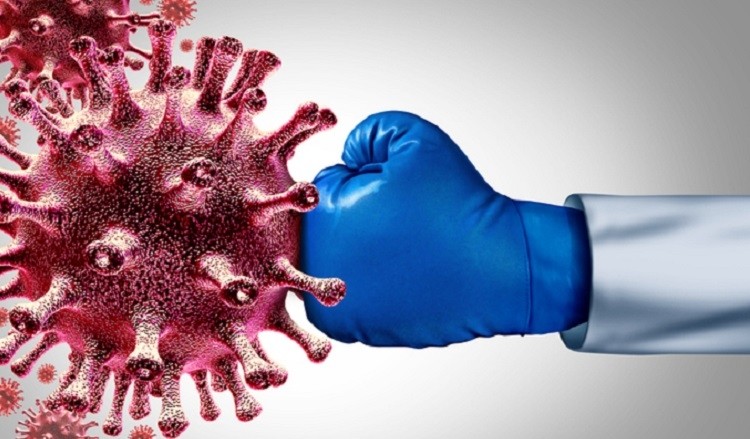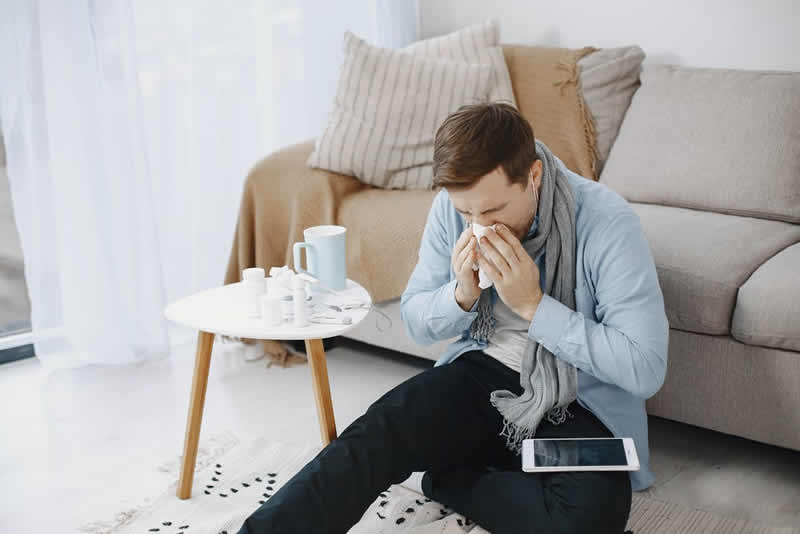They found that the common respiratory virus jump-starts the activity of interferon-stimulated genes, early-response molecules in the immune system which can halt the replication of the SARS-CoV-2 virus within airway tissues infected with the cold.
Triggering these defenses early in the course of COVID-19 infection holds promise to prevent or treat the infection.
One way to do this is by treating patients with interferons, an immune system protein that is also available as a drug.
Previous work showed that at the later stages of COVID-19, high interferon levels correlate with worse disease and may fuel overactive immune responses.
But recent genetic studies show that interferon-stimulated genes can also be protective in cases of COVID-19 infection.
In the study, the team infected lab-grown human airway tissue with SARS-CoV-2 and found that for the first three days, viral load in the tissue doubled about every six hours.

However, replication of the COVID-19 virus was completely stopped in tissue that had been exposed to rhinovirus. If antiviral defenses were blocked, the SARS-CoV-2 could replicate in airway tissue previously exposed to rhinovirus.
The same defenses slowed down SARS-CoV-2 infection even without rhinovirus, but only if the infectious dose was low.
This suggests that the viral load at the time of exposure makes a difference in whether the body can effectively fight the infection.
The researchers also studied nasal swab samples from patients diagnosed close to the start of infection. They found evidence of rapid growth of SARS-CoV-2 in the first few days of infection, followed by activation of the body’s defenses.
According to their findings, the virus typically increased rapidly for the first few days of infection, before host defenses kicked in, doubling about every six hours as seen in the lab; in some patients, the virus grew even faster.
The team says interferon treatment holds promise but it could be tricky because it would be most effective in the days immediately after infection when many people exhibit no symptoms.
In theory, interferon treatment could be used prophylactically in people at high risk who have been in close contact with others diagnosed with COVID-19.

These findings may help explain why at times of the year when colds are common, rates of infections with other viruses such as influenza tend to be lower.
If you care about COVID-19, please read studies about this common habit linked to severe COVID-19 and death and findings of this antiviral drug could effectively stop the spread and damage of COVID-19.
For more information about COVID-19 and your health, please see recent studies about this drug that can fully prevent symptomatic COVID-19 infections and results showing that 2 in 3 COVID-19 hospitalizations are caused by these 4 health problems.
The study is published in the Journal of Experimental Medicine. One author of the study is Ellen Foxman.
